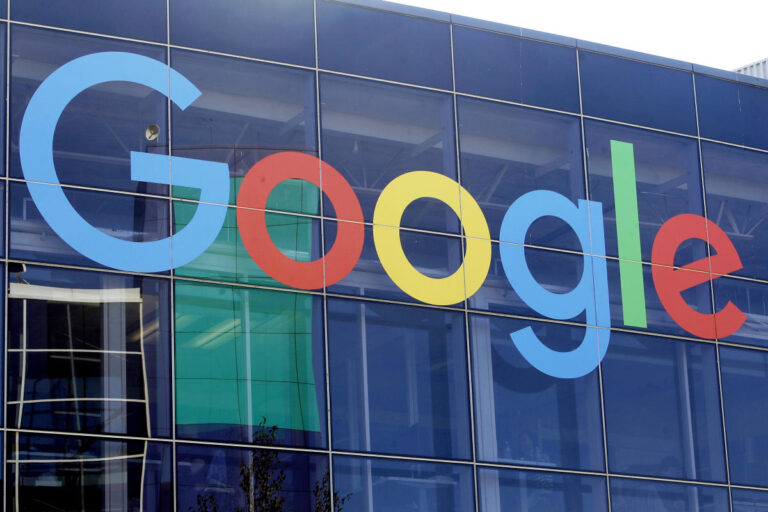SACRAMENTO, Calif. (AP) — Google on Friday began removing California news websites from some people's search results. The test served as a threat if state legislatures passed laws requiring search giants to pay media companies for links to their content.
Google announced the move in a blog post on Friday, calling it a “short-term test with a small group of users… to measure the law's impact on our product experience.” The company also announced that it will pause new investments in the California news industry, including media partnership initiatives and product licensing programs.
“By helping people find news stories, we help publishers of all sizes grow their audiences for free.[This bill]would upend that model,” Google said. Jafar Zaidi, vice president of global news partnerships, said in a blog post.
California lawmakers are considering a bill that would require tech giants like Google, Facebook and Microsoft to pay media companies a percentage of their advertising revenue for links to their content. How much companies will have to pay will be decided through an arbitration process by a panel of three judges.
The bill is aimed at halting the loss of journalism jobs, which are rapidly disappearing as traditional media companies struggle to turn a profit in the digital age. Since 2005, more than 2,500 newspapers have closed in the United States, according to Northwestern University's Medill School of Journalism. California has lost more than 100 news organizations in the past decade, said Democratic Rep. Buffy Wicks, the bill's author.
“This is a fundamental fairness bill that will ensure that platforms pay when they reuse content,” Wicks said. “We will ensure a brighter future for California journalists and the light of democracy will not go out.”
The state Legislature passed the bill last year with bipartisan support, despite fierce opposition and lobbying from big tech companies. To become law, the bill must be passed by the California Senate later this year.
Supporters say the bill would help level the playing field between news publishers and big digital platforms, and help local news outlets that rely heavily on Google's search engine to distribute content in the digital age. He said it would provide a “lifeline” to institutions. Google's search engine is the center of a digital advertising empire that generates more than $200 billion a year, but news publishers have seen their advertising revenues plummet in recent decades.
But opponents, including Google, Meta, and some independent newsrooms, call the bill a “link tax” that would primarily benefit out-of-state newspaper chains and hedge funds and reduce local reporting. This will further destroy the institution. Richard Gingras, Google's vice president for news, also told the state Legislature during a hearing last December that Google already does a lot to support local journalism, and that by 2023, the tech giant will be in nearly 1,000 local He pointed out that the publication received financial grants and training. program.
Gingras said Google's search engine should be considered “the biggest newsstand on the planet,” helping connect users to news websites more than 24 billion times a month. Google's search engine holds an estimated 90% share of the market.
“This traffic helps publishers make money by showing ads and attracting new subscribers,” he said, adding that for news websites, every time they click a link from Google. It is estimated to be worth between 5 cents and 7 cents, it added.
Google's decision to temporarily remove links to news websites is not a new tactic used by tech giants to push back on unwanted legislation. When Canada and Australia passed similar laws to promote journalism, Meta, which owns Facebook and Instagram, responded by blocking content from Canadian publishers on its sites in Canada. The company made similar threats to the U.S. Congress and California lawmakers last year. Google had threatened to do the same in Canada. But in November, Google agreed to pay C$100 million (US$74 million) to the news industry.
If Google completely blocks content from search, news publishers will suffer and could potentially lay off even more journalists, but experts say that without news content, Google will also suffer financially. It says that it will be.
“If Google decides to stop using newspaper content, You will be doing yourself a great deal of damage.” “They will cut off their noses to disfigure their faces.”
Political disputes over Google's dominant search engine could limit access to various news sources, but behind it are legal troubles and decisions that undermine the company's internet empire. There is a possibility that it will lead to.
U.S. Justice Department lawyers will file a federal lawsuit next month after presenting evidence supporting their claims that Google is abusing its power to stifle competition and innovation in the largest antitrust case in a quarter century. He is scheduled to make closing arguments before the judge. A decision is expected in the case later this year.
Following a separate antitrust case concluded in December, a federal jury found that Google turned its smartphone app store, which runs on Android software, into an illegal monopoly, limiting consumer choice while restricting in-app purchases. It concluded that the company had enriched itself by charging unreasonably high fees. A hearing on the changes Google must make based on the ruling is also scheduled to be held next month.
California is partnering with the University of California, Berkeley Graduate School of Journalism to revitalize local journalism through a variety of initiatives, including a $25 million multi-year state-funded program that places 40 young journalists in local newsrooms each year. We have been trying to make this possible. Lawmakers are also considering another proposal this year that would expand tax credits for local news organizations.
—-
Associated Press writer Michael Liedtke in San Francisco contributed to this report.


